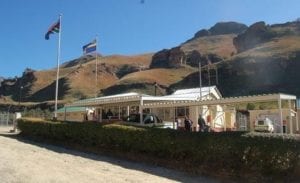South Africa urged to take the lead in fixing cross-border trade systems to prevent costly time delays with processing trucks and their cargoes.
Imperial Logistics, a subsidiary of JSE-listed Imperial Holdings , says SA needs to take the lead in fixing Africa’s borders or businesses will struggle to transport goods between countries to the point where intra-African trade becomes impossible. Speaking at the 19th Southern African International Trade Exhibition in Midrand yesterday, director of business development at Imperial Logistics transport and warehousing, Cyril Laubscher, said that SA was inadvertently killing other African countries’ ability to trade with each other and the rest of the world by not contributing to system upgrades. “SA’s companies need to take a role in getting African borders to work properly. Right now, there is too much duplication, and it is too costly to leave trucks sitting in Africa because processes are so slow to register goods,” he said. SA could trade with other parts of the world far more than the rest of Africa could, as it was more efficient in trade management, cheaper, and had less bureaucracy he said. One way in which SA could assist was for a local company to implement local software so other African countries did not have to spend millions of dollars on US software. “There is software that can cost $289m that people have taken an interest in. If we take it, it’s us as consultants trying to make money out of the shortcomings of Africa. We can get software for $1m-$2m if we look carefully,” he said.He said SA would lose out in the long run if it did not help its neighbours. Companies including Imperial were already shifting their focus to elsewhere in Africa. This was because of opportunities presented by countries which were geographically well positioned for trade and had some competitive advantage in logistics costs.
“Kenya and Zambia are already on their way to becoming the gateways to Africa for businesses because of their geographic position,” he said. “SA has lost its position as the gateway to Africa as these countries have business corridors. They move goods quicker.” Source: http://www.businessday.co.za






